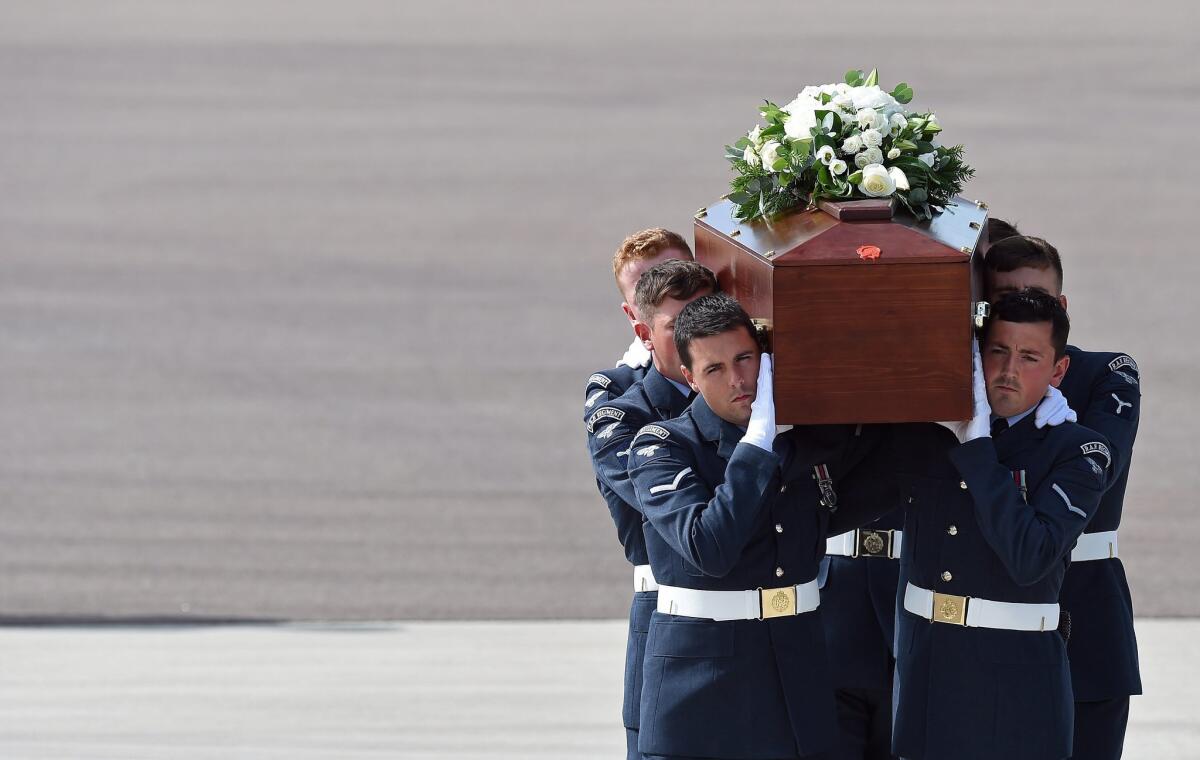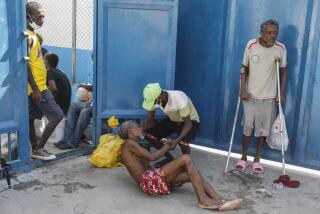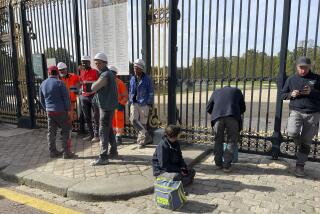Tunisia declares state of emergency, steps up its powers, after terror attacks

The coffin of Christopher Dyer is carried in Brize Norton, England, on Friday after arriving on a Royal Air Force plane that repatriated the bodies of five British nationals killed in a terrorist attack in Tunisia on June 26.
- Share via
Reporting from Alexandria, Egypt — Tunisia declared a state of emergency Saturday, eight days after a gunman slaughtered dozens of foreign tourists at a Mediterranean beach resort.
The move, which gives the government stepped-up powers to deal with suspected terrorists but also curtails to a degree the rights of ordinary citizens, marks an unhappy juncture in what had perhaps been the only real success story to emerge from the 2011 uprisings that were collectively dubbed the Arab Spring.
Tunisia, whose revolt against a longtime dictator set in motion similar pro-democracy movements across North Africa and the Middle East, had been making steady strides in its transition to democracy. But the June 26 attack on the idyllic seaside town of Sousse, which killed at least 38 people, most of them British vacationers, coupled with Islamic militants’ assault in March on a landmark museum in the capital, seemingly forced the government’s hand.
Emergency law strengthens executive powers, restricts rights such as freedom of assembly, and grants greater authority to the security forces. The declaration was announced by the office of President Beji Caid Essebsi, who later delivered a nationally televised speech.
In his address, Essebsi cited “a state of war of a special kind” that demanded the harnessing of the state’s powers.
A constitution agreed upon last year – and touted at the time as a token of Tunisia’s strengthening of its democratic institutions – does allow for an emergency declaration by the country’s leadership under “exceptional” circumstances. But for many, it harks back to days when authorities acted with impunity to quell any dissent.
Tunisian officials have been alarmed by evidence that two of the assailants in March’s museum attack, and also the lone gunman in the Sousse massacre, had been provided with training at militant camps in next-door Libya. In the two attacks, officials see an intensifying bid by Islamist militants to destabilize Tunisia’s still-fragile order.
The country’s last state of emergency was in 2011, during the revolt against longtime ruler Zine el Abidine ben Ali, who was forced to step down.
In the immediate aftermath of the Sousse attack, the government announced measures including the deployment of troops at tourist sites and the closing of dozens of mosques deemed as wellsprings of hate rhetoric.
The most recent rampage, which targeted foreign tourists as they swam and sunbathed, is expected to cause more than $500 million in losses to Tunisia’s tourist sector, one of the mainstays of the economy.
The gunman in the resort attack was shot dead, but authorities have rounded up a number of suspected accomplices.
Special correspondent Amro Hassan contributed to this report.
Follow @laurakingLAT on Twitter for news out of North Africa
More to Read
Sign up for Essential California
The most important California stories and recommendations in your inbox every morning.
You may occasionally receive promotional content from the Los Angeles Times.










